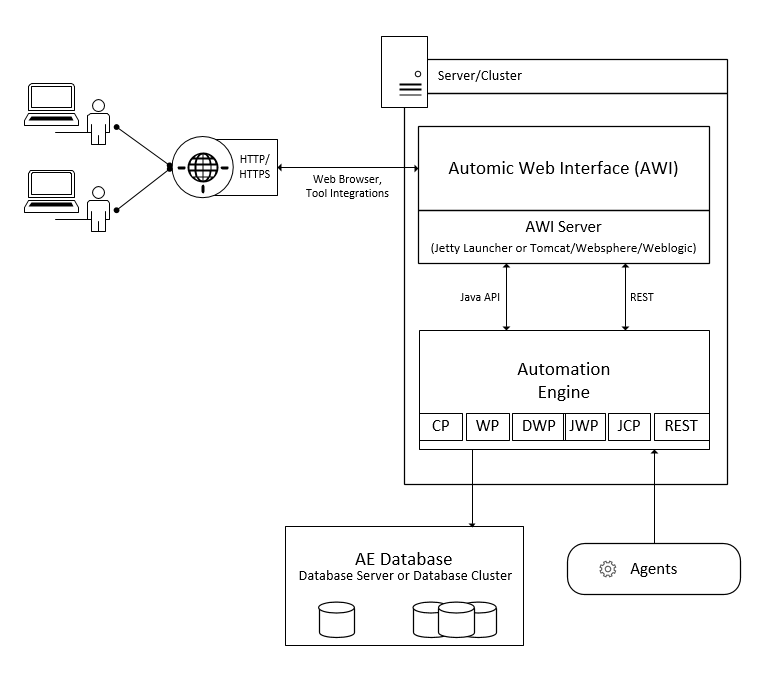Automic Automation Architecture
Knowing the different modules and additional components that make Automic Automation and understanding their interaction and dependencies is essential, especially if you are a system administrator.
The core of an Automic Automation system is the Automation Engine. An Automation Engine system is a combination of the following modules:
- The Automation Engine itself on a server
- The database (DB2, Oracle, MS SQL or PostgreSQL), on the same or a different server of your choice
- The Agents, which communicate either through communication processes (CPs) or Java communication processes (JCPs) with the Automation Engine
- The Automic Web Interface

A number of ports must be open for Automic Automation communication. For detailed information on the default port definition, see Configuring Firewall and Ports.
In addition, Automic Automation as a bundle also contains products that enhance or support the setup you choose with various features. The following additional components are supplied with Automic Automation:
-
Analytics
Collects and compiles large amounts of historical data about your Automation Engine system for analysis and reporting.
-
Package Manager
Command line tool to retrieve, install or update packages on top of the Automic system.
-
Plugin Manager
Extension to the AWI that can be used to install, upgrade and remove Packs in order to extend the functionality of the Automic Automation system.
-
Action Builder
Extension to the AWI that allows users to create new Actions (sets of objects) for common operations to be used in workflows.
-
LDAP Sync
TLS-supported user permission and credential management that integrates Active Directory.
-
Proxy
Small but efficient application to connect separate installations and systems by centrally configured ports, securely.
-
Service Manager
Allows you to centrally manage all your system's services.
More information:
- Analytics and Reporting
- About Package Manager
- About the Plugin Manager
- About Action Builder
- LDAP Sync - Synchronizing LDAP and Automic system Users
- About Proxy
- ServiceManager
See also: